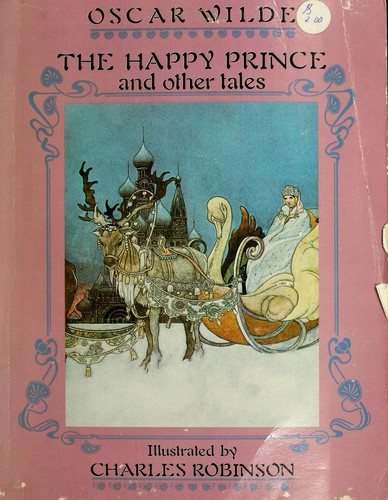
She is now embroidering a satin gown to the Queen’s maids for the next Court-ball while her child is crying and suffering from high fever.

Happy Prince asks little Swallow to pluck a ruby from his sword-hilt and bring it to a poor sewist. Even if Happy Prince is dead now, he “cannot choose but weep” while watching his people suffer because of many problems such as unemployment, poor health conditions, exploitation, and so on. He was so happy that his people made his giant statue and placed it at the top of his city after him. Then Prince tells his story: he lived and died within the borders of his Palace of Sans-Souci, without knowing what human suffering is. Three giant water drops fall into Swallow’s head, and when he looks up the figure of the Happy Prince, Swallow sees it is weeping. One day a little Swallow, separated from his flock, comes and lies beneath the statue of Happy Prince. Wilde’s “The Happy Prince” narrates the story of a self-sacrificing titular character’s futile attempts to end economic problems in his society. Read About: Aspects of Christianity in “The Happy Prince” by Oscar Wilde

Here, we’ll find his socialist perspective in his fairy tale collection of The Happy Prince and Other Tales. Wilde proposes the problems of inequality in British society. Wilde asserts that the tremendous economic gap between the poor working class and wealthy bourgeoisie in Victorian age England resulted from capitalist mentality. The industrial capitalist Victorian age was placed under scrutiny by social problem novelists such as Elizabeth Gaskell, Benjamin Disraeli, and Charles Dickens, and economic theorists such as Karl Marx and Friedrich Engels. Some of the essential topics of economic conditions of the Victorian age were child labor, class antagonism between working and middle classes, unemployment, and so on. The Industrial Revolution of the late 18th century had a profound impact on Victorian economics and social life. In this work, Wilde proposes the establishment of Socialism in England to end social inequalities created by Capitalism.

In his 1891 essay, The Soul of Man Under Socialism, Wilde described himself as an anarchist since he was heavily influenced by Russian philosopher and prominent anarchist Peter Kropotkin. The Happy Prince was published in 1888 by Oscar Wilde.



 0 kommentar(er)
0 kommentar(er)
